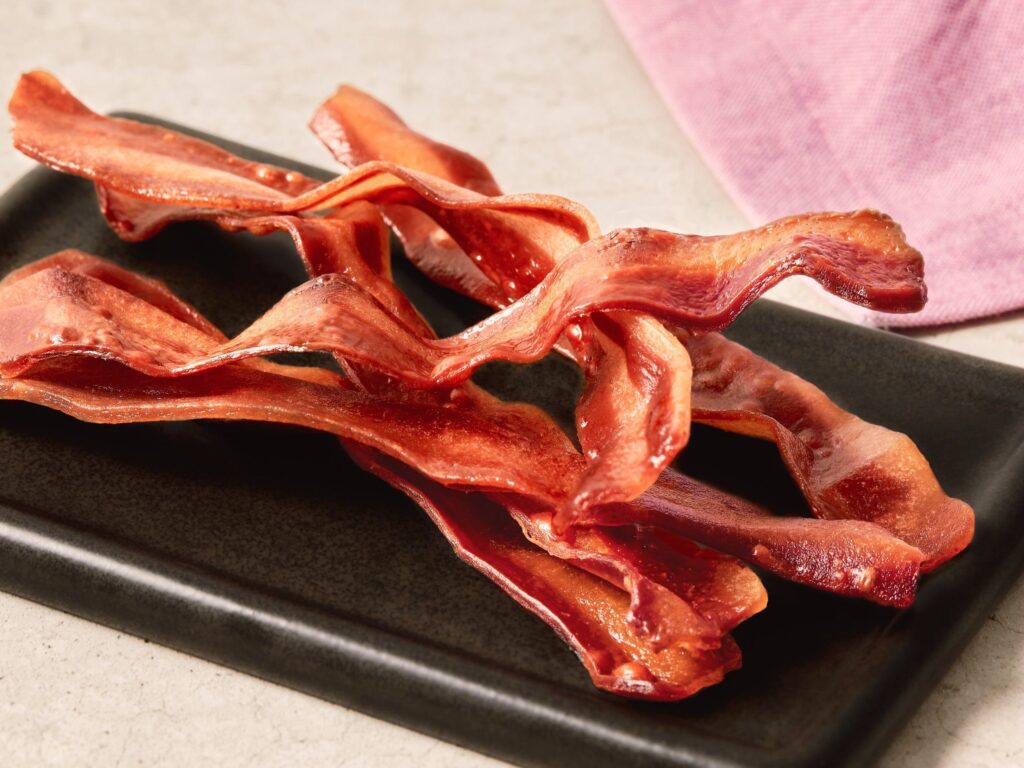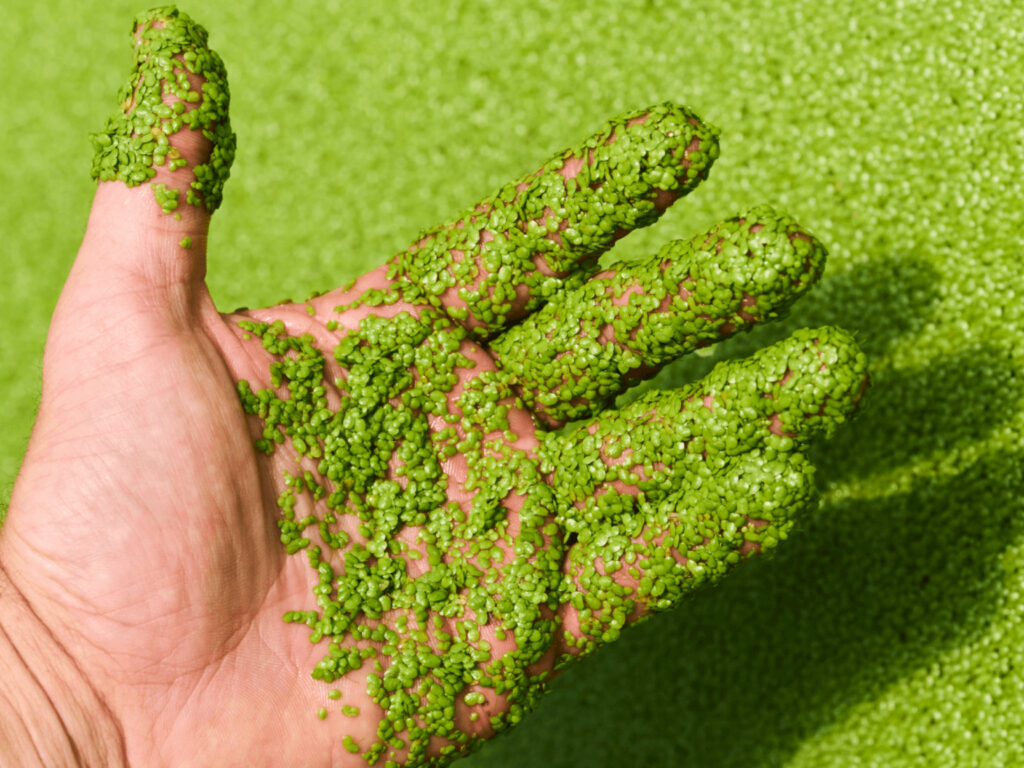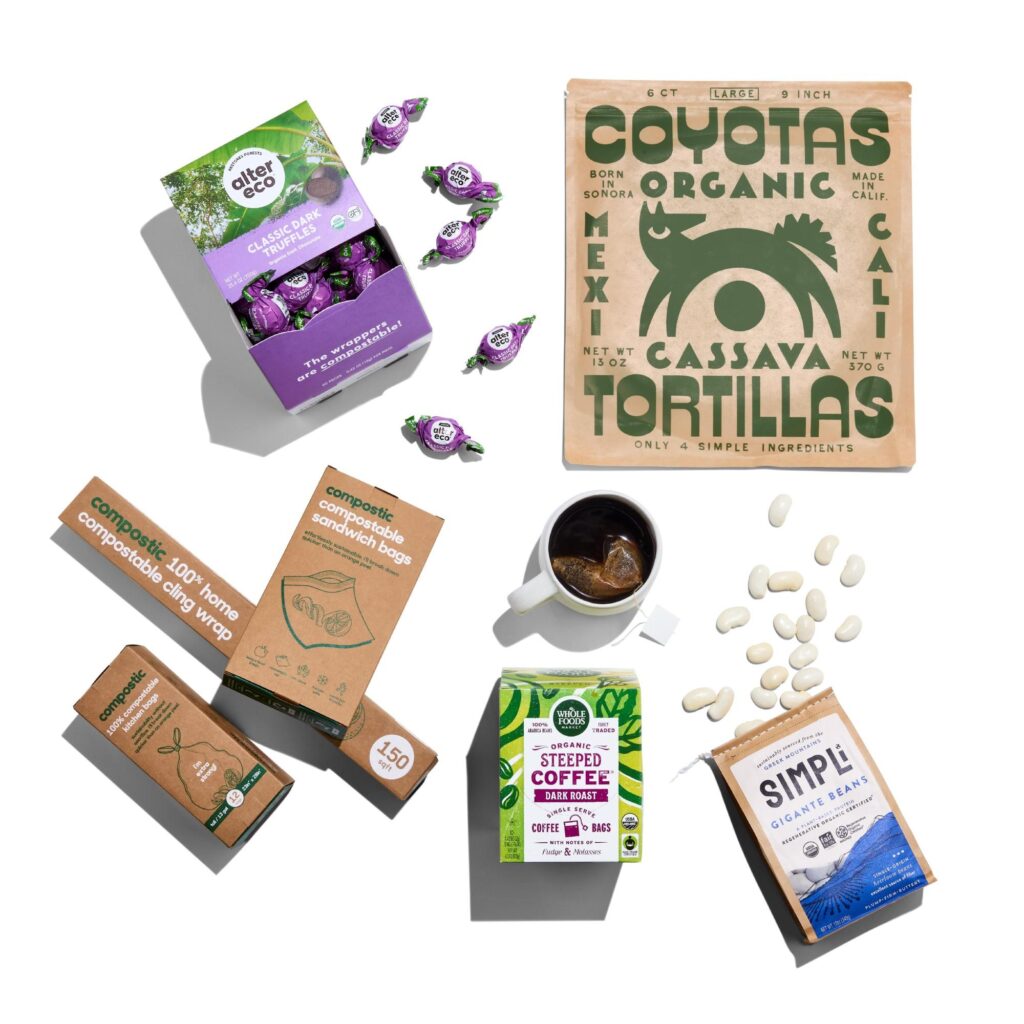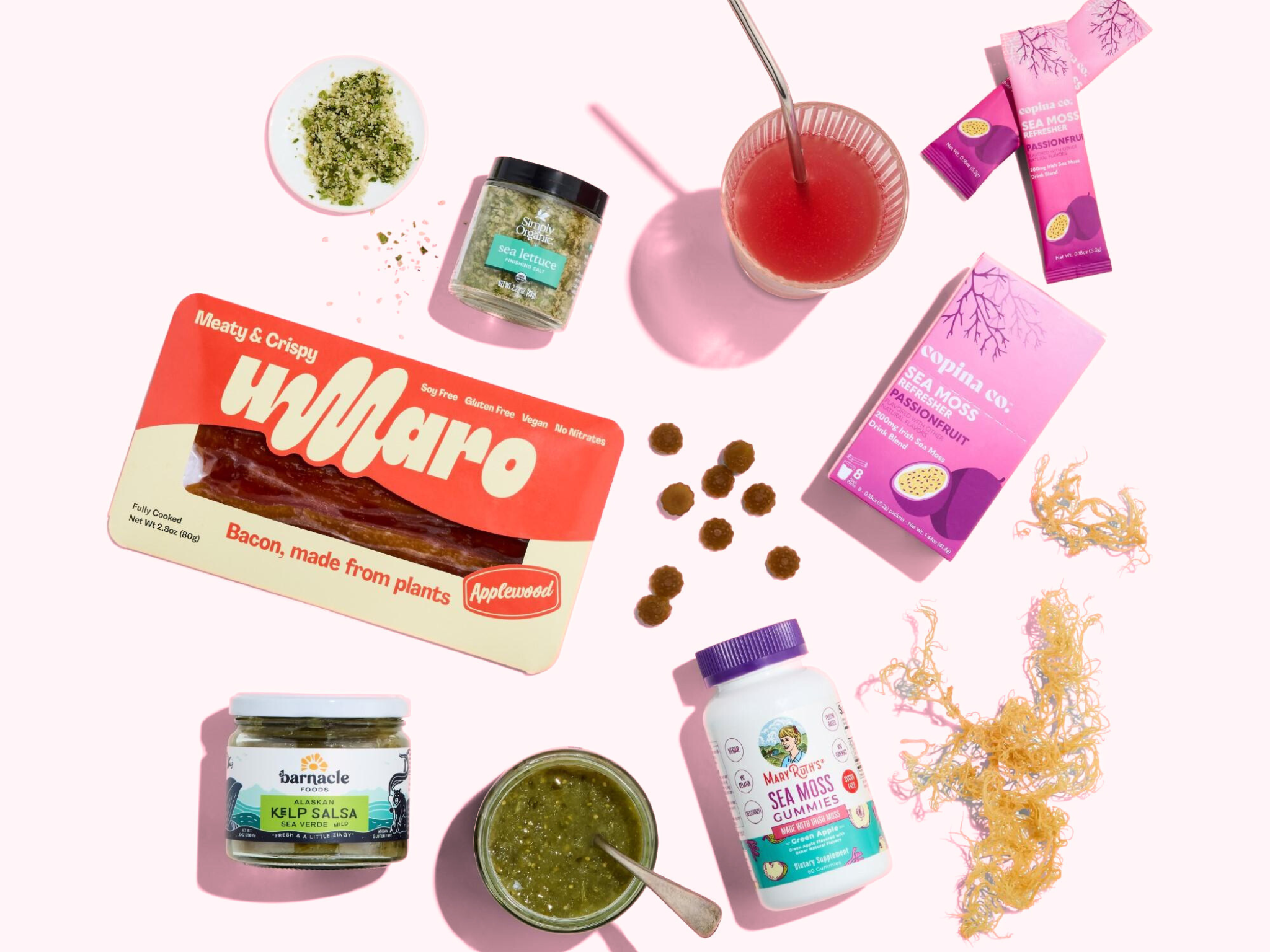Duckweed, Sea Moss & Eco-Friendly Booze Among Whole Foods Market’s Top Trends for 2025
4 Mins Read
Whole Foods Market has published its annual list of food trends for the upcoming year, highlighting ‘plant-based aquatic ingredients’ as a key category to watch.
2025 could be the year of duckweed, sea moss, agar agar and other vegan marine ingredients, according to Whole Foods Market’s trends predictions for the year.
It marks the 10th edition of the retailer’s annual forecasts, compiled by a council of 50 employees, from foragers and floor members to buyers and executives.
“From important food movements around animal welfare, climate, and transparency, to the evolving tastes and preferences of consumers, trends in food end up driving our dinner table conversations for years to come and help spark some of the best ideas and solutions for the future,” said Cathy Strange, food culture ambassador for the retailer, and a member of its trends council.
The 2025 edition hit on texture, snacking, and novel sourdough breads, alongside a focus on marine plant-based food and sustainable tipples.
Getting high on (aquatic) weed

Whole Foods Market has named ‘plant-based aquatic ingredients’ as one of the 10 trends to look out for in 2025. “With the continued popularity of seaweed and the increasing interest in harvesting readily available aquatic plants for more sustainable sources of protein and nutrients, the tide is turning toward foods made with more sea and freshwater greens,” the retailer writes.
This includes sea moss, scientifically known as Chondrus crispus, which has exploded in popularity recently thanks to celebrities and social platforms like Bella Hadid and TikTok. The ingredient is a “buzzy wellness ingredient” hailed for its iron, magnesium and iodine content, and is found in foods like beverages, gummies and even meat analogues.
For example, Umaro Foods uses sea moss extract in combination with protein from another seaweed, nori, for its plant-based bacon. “Saltwater crops are an underappreciated and understudied solution to climate change, which is why Umaro Foods is pioneering scalable technology in this domain,” wrote co-founder and CEO Beth Zotter.
Whole Foods Market also highlighted products like Simply Organic’s Sea Lettuce Finishing Salt, Kamuni Creek’s Mango Seamoss, MaryRuth’s Sea Moss Gummies, and Copina Co.’s Passionfruit Sea Moss Refresher as trailblazers of this trend.

It further underlined the potential of duckweed. Also called lemna or water lentils, these are free-floating freshwater aquatic plants that together form something resembling a green carpet on the surface. Duckweed has been consumed in Southeast Asia for centuries, and has 43% of protein in its dry form, while containing micronutrients like iron, zinc, vitamin B12 and omega-6 in higher concentrations than many vegetables.
The retailer noted that lemna is in the “early stages of emerging on the scene and boasts a higher protein content than other leafy greens”. There are a number of startups innovating with this aquatic ingredient, including Plantible Foods, Fyto, GreenOnyx, MicroTerra, and Sustainable Planet.
Finally, Whole Foods Market pinpointed agar-agar, a vegan gelatin alternative derived from red algae, as an ingredient growing in popularity. While this has been around for a while, the supermarket’s trends council highlights its fibre base, which promotes digestive support. Gut health has become a central focus of diets for many Americans with the rise of GLP-1 drugs like Ozempic, so fibre-packed ingredients – which promote gut wellness – are likely to gain ground.
Whole Food Markets bets on sustainable booze and packaging

Among the other sustainability-linked trends in Whole Foods Market’s 2025 forecast are ‘next-level compostable’ and ‘more sustainable sips’.
“Products that aren’t ditching packaging completely are going the compostable route, making some or all elements of their packaging compostable,” it said, pointing out how brands like Compostic are enabling home composting, while Rainer Fruit is working on commercially compostable stickers for fruit and vegetables.
It noted that alcohol brands are working to reduce their climate footprints, with natural wine companies embracing lower-impact packaging, and beer and whiskey brands using ingredients like drought-resistant fonio or regeneratively farmed kernza.
Rounding up the trends list, Whole Foods Markets predicts a surge in international snacking, dumplings, crunchy textures, water and hydration, organ meats, teas (including those with plant-based milk), and sourdough breads.
“This year, we’re especially excited to celebrate how far we’ve come by spotlighting trends for 2025 that not only reflect growing consumer preferences, but also push the boundaries of what’s possible for the world of food,” said Whole Foods Market CMO Sonya Gafsi Oblisk. “We’re eager to see these trends take shape and inspire our customers in the year ahead.”
Last year, the trends council forecast a rise in popularity of whole-food plant-based options and concepts that use the entirety of the cacao fruit – both of which took shape in 2024. It had also outlined premium vegan fish as a trend, although this sector has struggled with multiple closures in the last year, despite some more recent successes.



